Real Talk with Morgan Nixon, Shelter Manager for the Humane Society of Pulaski County
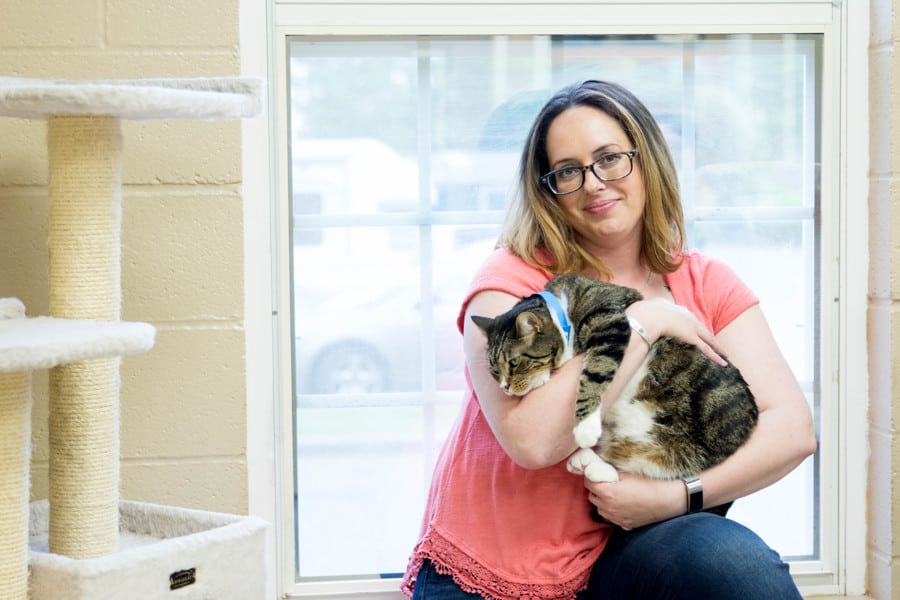
From DNA Analyst in a state Crime Lab to Shelter Manager for the Humane Society of Pulaski County? It’s not your run-of-the-mill career change, but for Morgan Nixon, it was her dream come true. We visited the Humane Society of Pulaski County to interview Morgan about her career as a DNA analyst, her transition to nonprofit work, and how she hopes to keep changing the Humane Society for the better. (And we got to visit with some really cute cats and dogs.)
Location: Little Rock, AR
Title: Shelter Manager
Company: Humane Society of Pulaski County
What it is: A 501(c)(3) charitable organization and privately funded no-kill shelter.
Educational Background: BS in Biology, BS in Sociology, and MS in Molecular Biology from the University of Central Arkansas
How did you get your start with the Humane Society of Pulaski County (HSPC)?
I saw the ad for Shelter Manager and although I had no experience, I attached a very passionate letter along with my resume essentially begging them to hire me. I told them I could learn whatever managerial skills were necessary, and quickly.
You’re proof that a cover letter can make all the difference! Do you have any tips?
Be passionate. If you really care about the position, let them know!
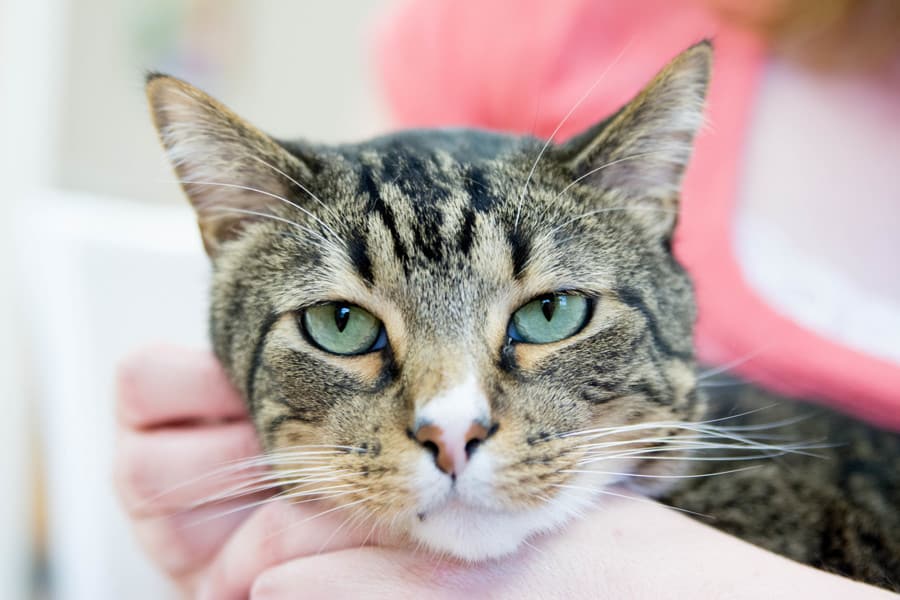
What was the hardest part about taking on a managerial role with no experience?
Making grown adults act like grown adults. Employees can have so many petty squabbles, don’t want to come to work, etc. I try to be both understanding and firm.
Treat your staff like they matter to you, especially because they hold something really precious in their hands.
Was this always what you planned to do?
Not at all. In college, I was pre-vet and had planned on going to vet school, but working at vet clinics quickly turned me off of that. Although vets go into practice because they love animals, they still can’t help looking at the bottom dollar. I never wanted to end up in a position where animals = money, or else your practice is going to tank.
So I just continued on with a Master’s degree, not knowing what else I would do. Turned out I had all of the qualifications to become a DNA analyst.
What led you to become a DNA analyst?
Literally, just because I had the qualifications and it sounded cool. It wasn’t something you went to school for almost 10 years ago; that’s more recent.
What did you do as a DNA analyst?
Working in the Arkansas State Crime Lab, I obtained DNA profiles when possible from items of evidence, compared them to known DNA profiles when possible, issued reports, and testified to those reports in court.
You said it sounded cool – was it?
It was cool! It was scientific and dramatic and nerdy and kinda sexy.
What was the transition into non-profit like?
The nonprofit world requires you to be constantly nice to people because you never know who the next donor is going to be. Your boss is also a board, so there are a lot of people to answer to.

Did you take a pay cut by switching to nonprofit?
Yep, I took a pay cut and lost all benefits (such as health insurance and retirement). I can’t afford vision and dental, and I pay six times as much as I used to for health insurance.
What’s the most challenging aspect of nonprofit work?
Never feeling secure about how long we can keep afloat because we depend on donations.
What does a typical day look like for you?
Exhausting.
There’s so much to take care of all of the time, from creating schedules to handling people calling in to firing and hiring to ordering supplies to applying for grants to dealing with the public (both on the phone and in person) to coordinating with the vet to trying to calm down a terrified animal.
Because we’re a no-kill shelter, we don’t get space to take in more animals until the existing animals get adopted. It feels like a lot of my time is spent explaining to people that we can’t take in their animals because we work from a waiting list. We can’t take in every animal off the street, but we have to have a lot of resources to direct people to when we can’t help.
If you could have given yourself a piece of knowledge or advice when you started what would that be?
To be prepared for stress. I thought I knew what stress was before, working at the Crime Lab, but it is nothing compared to this.
Would you do anything differently?
I would get a subscription to the Calm app earlier.
What’s the hardest part of your job?
Telling people no. Whether it is no to taking in their animal right that second, or no to someone trying to adopt an animal that isn’t right for them, people really don’t like to hear it. People especially don’t want to hear “no” when they think they are doing a “good thing.”
What’s the most rewarding part of your job?
Placing a fur baby in a home that’s perfect for them. I love knowing they are going to have a wonderful life, and that everything I’ve done as my job has helped lead to that.
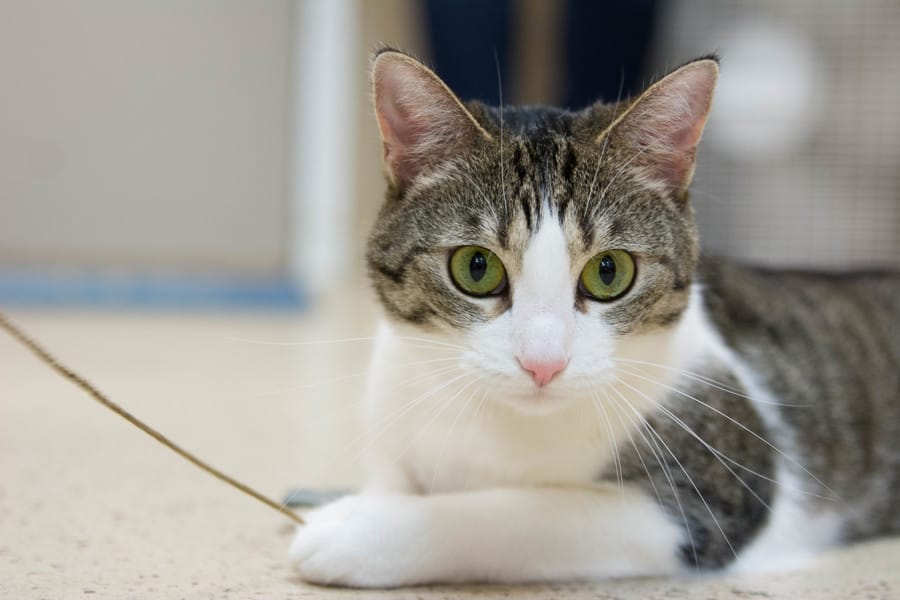
How do you use social media at HSPC?
We are pretty Facebook-centered right now. We find that it is the best way to get out information about events and to “advertise” special animals for adoption.
Our Twitter presence is pretty negligible; it would be nice to beef that up a bit. We are working on our website right now, and I hope that helps too. We have somewhat of an Instagram presence, but I’d like for us to develop that more too.
I also started a Manager’s Newsletter that I send out via Constant Contact and Facebook every month, and I feel that gets out some valuable information into the community.
What can we do to help animals?
Anything and everything! Donate time, money, and supplies to your local shelter, share posts on Facebook, foster or adopt… There are endless ways to help in your community.
(Note: Find your local animal shelter here: https://theshelterpetproject.org/shelters)
How do you define success?
Helping an animal have a better life. Simple as that.
What are your hobbies? What do you do when you’re not working?
I work six days a week, so between working and taking care of my own animals (I officially have nine cats and two dogs), there’s not a lot of extra time in my life. I try to do things that are calm and relaxing – meditation, exercise, audiobooks, and spending time with my family (we are really close, both figuratively and literally – we all live in the same small town).
You’re very invested in your job. How do you balance your work with your personal life?
I don’t, really. My job is my personal life in most respects – in fact, my best friend even works here and another close friend is a regular volunteer. My parents adopted a blind cat from here, I’ve adopted a dog… the crossovers are endless. I chose this job because animal welfare is what I did outside of work in my personal life, and I wanted to devote my professional life to it as well.
What’s next for you and the Humane Society of Pulaski County?
I hope to always be in this field. It’s who I am. I just hope to be able to help even more animals in my lifetime. I would like this place to have an awesome outdoor cattery!
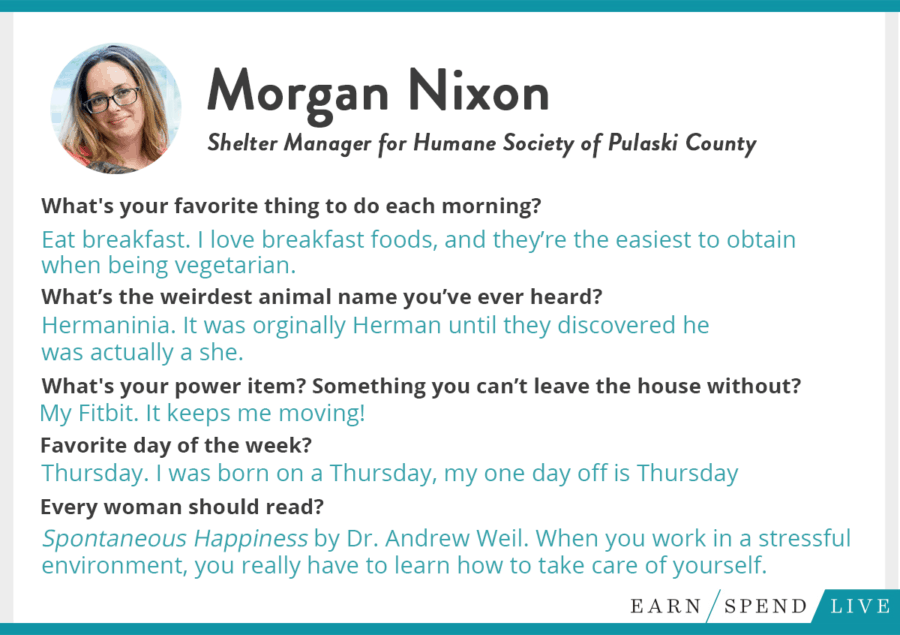
Last modified on May 1st, 2017



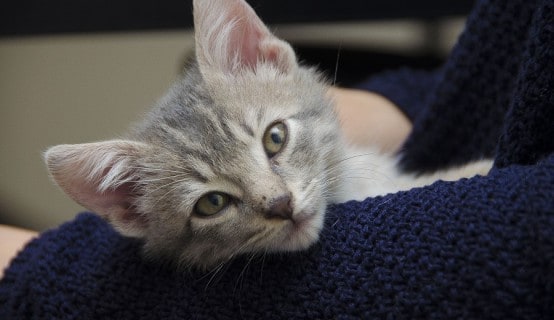
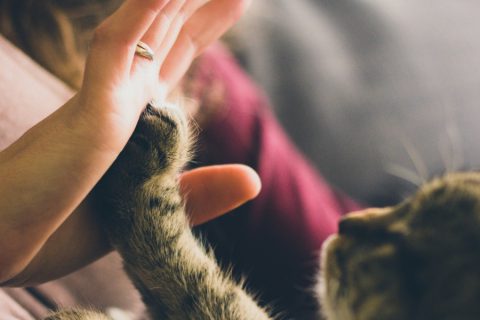

Show Comments +